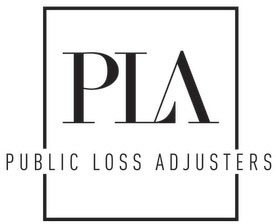What Does Renters Insurance Do?

Renters insurance, also known as an HO-4 policy, is a crucial safeguard for individuals who rent their living spaces, whether it’s an apartment, house, or condo. Unlike homeowners insurance, renters insurance does not cover the building or structure where you live; instead, it protects your personal belongings and provides liability coverage in case of accidents or damages. Here’s an in-depth look at what renters insurance does and the various coverages it includes under an HO-4 policy.
- Associate in Claims (AIC): This designation signifies our comprehensive knowledge of claim handling principles, practices, and procedures. We are adept at managing claims efficiently and effectively, ensuring fair settlements for our clients.
- Associate in Claims Management (AIC-M): This advanced designation highlights our expertise in managing claims operations, including strategic planning, resource management, and quality control. We bring a strategic approach to every claim, optimizing outcomes for our clients.
- Senior Professional Public Adjuster (SPPA): This top-level designation reflects our deep experience and leadership in public adjusting. As SPPA holders, we are recognized for our ability to handle complex claims and advocate strongly for our clients' interests.

Personal Property Coverage
One of the primary functions of renters insurance is to protect your personal belongings. This coverage ensures that if your possessions are damaged or stolen, you can repair or replace them. Personal property coverage typically includes:
- Furniture: Couches, beds, tables, and other furnishings.
- Electronics: TVs, computers, smartphones, and other electronic devices.
- Clothing: Apparel, shoes, accessories, and other personal wearables.
- Appliances: Kitchen gadgets, microwaves, and other small appliances.
- Jewelry and Valuables: Items of higher value, though they might have sub-limits within the policy.
Renters insurance generally covers your belongings against the following perils:
1. Fire or Lightning
2. Windstorm or Hail
3. Explosions
4. Riots or Civil Commotion
5. Damage by Aircraft
6. Damage by Vehicles
7. Smoke Damage
8. Vandalism or Malicious Mischief
9. Theft
10. Volcanic Eruption
11. Falling Objects
12. Weight of Ice, Snow, or Sleet
13. Accidental Discharge or Overflow of Water or Steam
14. Sudden and Accidental Tearing Apart, Cracking, Burning, or Bulging of a Heating or Cooling System
15. Freezing
16. Sudden and Accidental Damage from Artificially Generated Electrical Current
Liability coverage is another critical component of renters insurance. This protection comes into play if you are found legally responsible for injuring someone or damaging their property. Liability coverage includes:
- Bodily Injury: Covers medical bills, lost wages, and pain and suffering of the injured party if you are found liable.
- Property Damage: Pays for repairs or replacement if you accidentally damage someone else’s property.
Liability coverage typically extends to incidents that occur both within your rented home and elsewhere. For example, if your dog bites someone at a park, your renters insurance might cover the resulting medical expenses.
If your rented home becomes uninhabitable due to a covered peril, renters insurance can help cover the additional costs of living elsewhere temporarily. This is known as Additional Living Expenses (ALE) coverage. ALE can include:
- Hotel Bills: Costs of staying in a hotel while your home is being repaired.
- Restaurant Meals: Expenses for dining out if you cannot cook at home.
- Temporary Rentals: Costs of renting another place to live during repairs.
Renters insurance often includes a provision for medical payments to others. This coverage helps pay for medical expenses if a guest is injured on your property, regardless of who is at fault. It’s designed for minor injuries and typically has lower limits than liability coverage.
Renters insurance policies often offer optional coverages that you can add for an extra premium. These can include:
- Replacement Cost Coverage: Instead of paying the actual cash value (depreciated value) of your belongings, this option covers the cost to replace items with new ones of similar kind and quality.
- Scheduled Personal Property: If you have high-value items like expensive jewelry, art, or collectibles, you can schedule them separately to ensure full coverage.
- Identity Theft Coverage: This covers expenses related to restoring your identity if it is stolen.
An HO-4 policy, also known as renters insurance, includes various coverages designed to protect renters in multiple ways. Here is a detailed breakdown of each coverage typically included in an HO-4 policy:
1. Coverage C – Personal Property
Description: This coverage protects your personal belongings from various perils, as mentioned above. It ensures that if your items are damaged, stolen, or destroyed, you will be compensated for their loss or repair.
Typical Limits: The coverage limit is chosen by the policyholder and can vary widely. Common limits range from $10,000 to $100,000 or more, depending on the value of your belongings.
2. Coverage D – Loss of Use
Description: Loss of Use coverage, or Additional Living Expenses (ALE), provides financial assistance if your rented home becomes uninhabitable due to a covered peril. It helps cover the extra costs of living elsewhere while repairs are being made.
Typical Limits: This is usually a percentage of the personal property coverage limit. For example, if you have $50,000 in personal property coverage, your ALE might be limited to 20% of that amount, or $10,000.
3. Coverage E – Personal Liability
Description: Personal Liability coverage protects you if you are legally responsible for causing bodily injury or property damage to someone else. It covers legal fees, court judgments, and settlement costs up to the policy limits.
4. Coverage F – Medical Payments to Others
Description: This coverage pays for medical expenses if a guest is injured on your property, regardless of fault. It is designed for minor injuries and does not cover injuries to you or your household members.
Typical Limits: Common limits for medical payments coverage are $1,000 to $5,000 per person, depending on the policy.
Additional Coverages and Endorsements
Beyond the standard coverages, an HO-4 policy can be customized with additional coverages and endorsements. Here are some common options:
Instead of paying the depreciated value (actual cash value) of your belongings, this option provides enough money to replace them with new items of similar kind and quality.
For high-value items like jewelry, artwork, musical instruments, and collectibles, you can schedule them separately to ensure they are fully covered. This often requires a professional appraisal.
Covers damage caused by water backup from sewers or drains. This is typically excluded from standard policies but can be added as an endorsement.
Provides assistance and reimbursement for expenses related to restoring your identity if it is stolen. This can include legal fees, lost wages, and costs for reissuing documents.
In regions prone to earthquakes, this endorsement can provide protection against damage caused by seismic activity.

Why Renters Insurance is Essential
Renters insurance is often overlooked, but it is essential for several reasons:
- Affordable Protection: Renters insurance is relatively inexpensive, especially compared to the potential cost of replacing your belongings or paying for liability claims out-of- pocket.
- Peace of Mind: Knowing that your personal property is protected against common perils provides peace of mind.
- Liability Protection: Accidents can happen, and liability coverage ensures you are financially protected if you are responsible for someone else’s injury or property damage.
- Requirement by Landlords: Many landlords require tenants to have renters insurance as part of the lease agreement.
When selecting a renters insurance policy, consider the following factors:
- Coverage Limits: Assess the value of your personal belongings and choose a coverage limit that would adequately replace them in the event of a total loss.
- Deductibles: A deductible is the amount you pay out-of-pocket before your insurance kicks in. Higher deductibles can lower your premium but will increase your costs in a claim.
- Optional Coverages: Evaluate if you need additional coverages like replacement cost or scheduled personal property for high-value items.
- 4. Customer Service and Claims Handling: Research the insurer’s reputation for customer service and claims handling. Look for reviews and ratings from other policyholders.
- Discounts: Inquire about discounts for bundling policies, having security systems, or being claim-free.
Renters insurance, or an HO-4 policy, offers valuable protection for tenants, covering personal property, liability, additional living expenses, and more. By understanding the coverages included and how they benefit you, you can make an informed decision and choose a policy that provides the security and peace of mind you need. At MoldClaim.org, we recommend all renters consider this essential insurance to protect their belongings and financial well-being. If you have any questions or need assistance with your renters insurance claims, our team is here to help.
